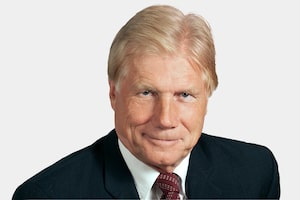Aren't there more important things to talk about? When the Liberals gather in Ottawa this weekend for a conference on the future of the party, one of the bigger items on the agenda will be the monarchy.
The Liberals' youth wing is pushing to cut the final cord with Britain. It favours a policy resolution calling for the election of a Canadian as head of state. The party has occasionally flirted with such notions, but they've never taken wing. And now would hardly appear to be propitious timing.
With the wedding of Prince William and Kate Middleton giving it a big image boost, the monarchy has been showing signs of revitalization in Canada. The Conservative government has gone to considerable lengths to reconnect with royalty, an example being its rebranding of our navy and air force.
So why would the Grits want to mess with this harmless, symbolic institution when many other vital issues are before them?
In fact, there are many reasons, some of which make sense.
One is that the party, condemned as lost in the middle, lost in the past and fading into irrelevance, needs a new vision. Becoming new, as some genius once concluded, means turning away from the old. Moving the country to its final stage of independence certainly has a modernizing look.
The monarchy is hanging on in many countries, but it's hardly the way of the future. In Jamaica, the new Prime Minister, Portia Simpson Miller, has just announced that her country will complete the cycle of independence by initiating the process of becoming a republic.
In Canadian history, the cycle of independence has been authored chiefly by the Liberal Party. It was under the Liberals in 1929 that the Statute of Westminster, which eliminated much of Britain's authority to make laws for Canada, was negotiated. It was under Lester Pearson in 1965 that Canada got its own flag. It was under Pierre Trudeau in 1982 that the Constitution was patriated. It's natural that the Liberals should be the party that takes the final step.
A decoupling from the monarchy would be popular in Quebec, the province where that institution, for obvious reasons, is least popular. The Liberals need to rebuild their old base in Quebec. The monarchy move would help.
The monarchy is most popular with older Canadians, a demographic that the Conservatives have well in hand. But if you're looking to be the party of the future, it's the younger generations to whom you must appeal. Although William and Kate were a big hit in Canada with all age groups, the monarchy is less relevant to the younger set. And it's less relevant to an increasingly multiethnic Canada.
The Liberals could use a severing of royalty ties as a gateway to something bigger – a modernization and reform of our ailing democratic system. Liberals are already talking about reducing the powers that any new leader of their party would have. Many also favour the idea of restructuring the divisions of powers in Ottawa so as to reverse the long-time trend toward one-man rule. But they've yet to come up with good ideas for the creation of a new democracy, one befitting the 21st century, one that could see them dealing with Senate reform or abolition as well.
To speak of doing away with ties to the monarchy or any grand reform reordering the power structure is difficult from a practical standpoint, in that it would likely require a constitutional amendment supported by the provinces.
But the Liberals should at least give some consideration to the proposal being put forward by their youth wing. This is a party in need of a big idea, in need of a new frontier.
 Lawrence Martin
Lawrence Martin